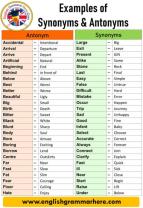Does language determine our thoughts?
The question of whether language determines our thoughts is a topic of debate in the fields of linguistics and cognitive science. The linguistic relativity hypothesis, often referred to as the Sapir-Whorf hypothesis, suggests that the language we speak can influence and shape the way we think. There are two main versions of this hypothesis:
Linguistic Determinism: This extreme version of the hypothesis posits that language entirely determines thought. In other words, if a concept or idea doesn't have a word or expression in a language, then speakers of that language cannot think about that concept. This idea has been widely discredited and is not supported by empirical evidence. Most scholars reject linguistic determinism.
Linguistic Relativity: This is the more widely accepted and nuanced version of the hypothesis. It suggests that the language we use can influence our thought processes and perceptions. Different languages may structure reality differently, and this structural difference can lead speakers of those languages to focus on and think about certain aspects of the world more than others. It acknowledges that language has some influence on thought but doesn't go as far as determining thought.
There is evidence to support the idea that language can influence thought in various ways:
Vocabulary: The words and terms available in a language can influence what concepts and ideas individuals are capable of expressing and thinking about. For example, some languages have specific words for concepts that may be more broadly described in other languages.
Cultural Norms: Language is closely tied to culture, and cultural norms and values often shape language. Therefore, the language you speak can reflect and reinforce the cultural norms and values that, in turn, can influence your thought and behavior.
Categorization: Languages categorize the world in different ways. For example, the grammatical structure of a language may require speakers to specify the gender of nouns, which can influence how they perceive and think about objects and even people.
However, it's important to recognize that while language can influence thought, it doesn't determine it completely. Humans have the capacity to think in abstract and flexible ways, and they can adapt their thoughts to fit the requirements of their language. Moreover, other factors such as personal experiences, upbringing, and cultural context also play a significant role in shaping individual thought processes.
In conclusion, while the linguistic relativity hypothesis suggests that language can influence thought, the extent of this influence is still a subject of ongoing research and debate. Most scholars agree that language plays a role in shaping thought but doesn't determine it entirely.
Language's Influence on Thought: A Thought-Provoking Inquiry
The relationship between language and thought is one of the most fascinating and complex topics in cognitive science. On the one hand, language is often seen as a tool for expressing thought. We use words to communicate our ideas and feelings to others. On the other hand, there is growing evidence that language also plays a role in shaping our thoughts themselves.
One way that language influences thought is by shaping our perceptions. The words we use to describe the world can affect how we see it. For example, if we are constantly bombarded with negative news stories, we are more likely to develop a negative view of the world.
Another way that language influences thought is by shaping our categories. We use categories to organize our thoughts and experiences. The categories we use can affect how we think about things. For example, if we categorize people into different groups, we may start to see those groups as different and separate.
Language also influences thought by shaping our concepts. Concepts are mental representations of things, such as objects, ideas, and events. The concepts we have for different things can affect how we think about them. For example, if we have a narrow concept of what it means to be successful, we may be more likely to focus on material success and less likely to focus on other important aspects of life, such as relationships and personal growth.
The Interplay Between Language and Thought: Exploring Connections
The interplay between language and thought is a complex and dynamic one. On the one hand, language is a tool for expressing thought. We use words to communicate our ideas and feelings to others. On the other hand, language also plays a role in shaping our thoughts themselves.
One way to think about the interplay between language and thought is as a two-way street. Language can influence our thoughts, and our thoughts can influence our language. For example, if we are feeling angry, we may be more likely to use angry language. Conversely, if we use angry language, it can make us feel more angry.
Another way to think about the interplay between language and thought is as a reciprocal process. This means that language and thought mutually influence each other. For example, the words we use to describe a situation can affect how we think about that situation, and how we think about a situation can affect the words we use to describe it.
Does Language Shape Our Thoughts? An Examination
The question of whether language shapes our thoughts is a complex one that has been debated by philosophers and scientists for centuries. There is now growing evidence that language does play a role in shaping our thoughts, but it is important to note that this is not a one-way street. Language and thought are mutually influential.
One of the most convincing pieces of evidence that language shapes our thoughts comes from studies of bilingual people. Bilingual people often have different personalities in different languages. This is likely due to the fact that different languages have different cultural norms and values. For example, a person who is shy in English may be more outgoing in Spanish, if they speak both languages fluently.
Another piece of evidence that language shapes our thoughts comes from studies of color perception. People from different cultures have different ways of categorizing colors. For example, the Dani tribe in New Guinea has only two words for colors: dark and light. As a result, the Dani tribe has difficulty distinguishing between different shades of colors.
These are just a few examples of the many ways in which language can shape our thoughts. The relationship between language and thought is a complex and fascinating one, and there is still much that we do not know about it. However, the research that has been done to date suggests that language plays a significant role in shaping the way we think about the world around us and ourselves.











